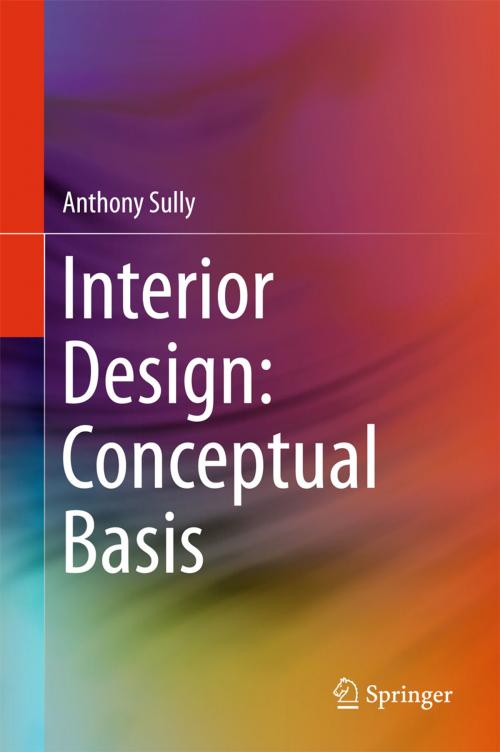Interior Design: Conceptual Basis
Nonfiction, Art & Architecture, Architecture, Interior Design, Science & Nature, Technology, Engineering, Civil| Author: | Anthony Sully | ISBN: | 9783319164748 |
| Publisher: | Springer International Publishing | Publication: | May 29, 2015 |
| Imprint: | Springer | Language: | English |
| Author: | Anthony Sully |
| ISBN: | 9783319164748 |
| Publisher: | Springer International Publishing |
| Publication: | May 29, 2015 |
| Imprint: | Springer |
| Language: | English |
Maximizing reader insights into interior design as a conceptual way of thinking, which is about ideas and how they are formulated. The major themes of this book are the seven concepts of planning, circulation, 3D, construction, materials, colour and lighting, which covers the entire spectrum of a designer’s activity. Analysing design concepts from the view of the range of possibilities that the designer can examine and eventually decide by choice and conclusive belief the appropriate course of action to take in forming that particular concept, the formation and implementation of these concepts is taken in this book to aid the designer in his/her professional task of completing a design proposal to the client. The purpose of this book is to prepare designers to focus on each concept independently as much as possible, whilst acknowledging relative connections without unwarranted influences unfairly dictating a conceptual bias, and is about that part of the design process called conceptual analysis. It is assumed that the site, location, building and orientation, as well as the client’s brief of activities and needs have been digested and analysed to provide the data upon which the design process can begin. Designed as a highly visual illustrative book, as the interior design medium demands, the hands-on creative process of designing is detailed with original drawn illustrations. Concentrating on the conceptual process of designing interiors, and defining what these concepts are, this book will help the designer to organise his/her process of designing and to sharpen the links between the various skill bases necessary to do the job. This book will be stimulating for students and instructors alike and is aimed at any student who maybe majoring in interior design, interior architecture, architecture, design thinking or furniture design. It could also be a useful reference for students of design management and design leadership.
Maximizing reader insights into interior design as a conceptual way of thinking, which is about ideas and how they are formulated. The major themes of this book are the seven concepts of planning, circulation, 3D, construction, materials, colour and lighting, which covers the entire spectrum of a designer’s activity. Analysing design concepts from the view of the range of possibilities that the designer can examine and eventually decide by choice and conclusive belief the appropriate course of action to take in forming that particular concept, the formation and implementation of these concepts is taken in this book to aid the designer in his/her professional task of completing a design proposal to the client. The purpose of this book is to prepare designers to focus on each concept independently as much as possible, whilst acknowledging relative connections without unwarranted influences unfairly dictating a conceptual bias, and is about that part of the design process called conceptual analysis. It is assumed that the site, location, building and orientation, as well as the client’s brief of activities and needs have been digested and analysed to provide the data upon which the design process can begin. Designed as a highly visual illustrative book, as the interior design medium demands, the hands-on creative process of designing is detailed with original drawn illustrations. Concentrating on the conceptual process of designing interiors, and defining what these concepts are, this book will help the designer to organise his/her process of designing and to sharpen the links between the various skill bases necessary to do the job. This book will be stimulating for students and instructors alike and is aimed at any student who maybe majoring in interior design, interior architecture, architecture, design thinking or furniture design. It could also be a useful reference for students of design management and design leadership.















